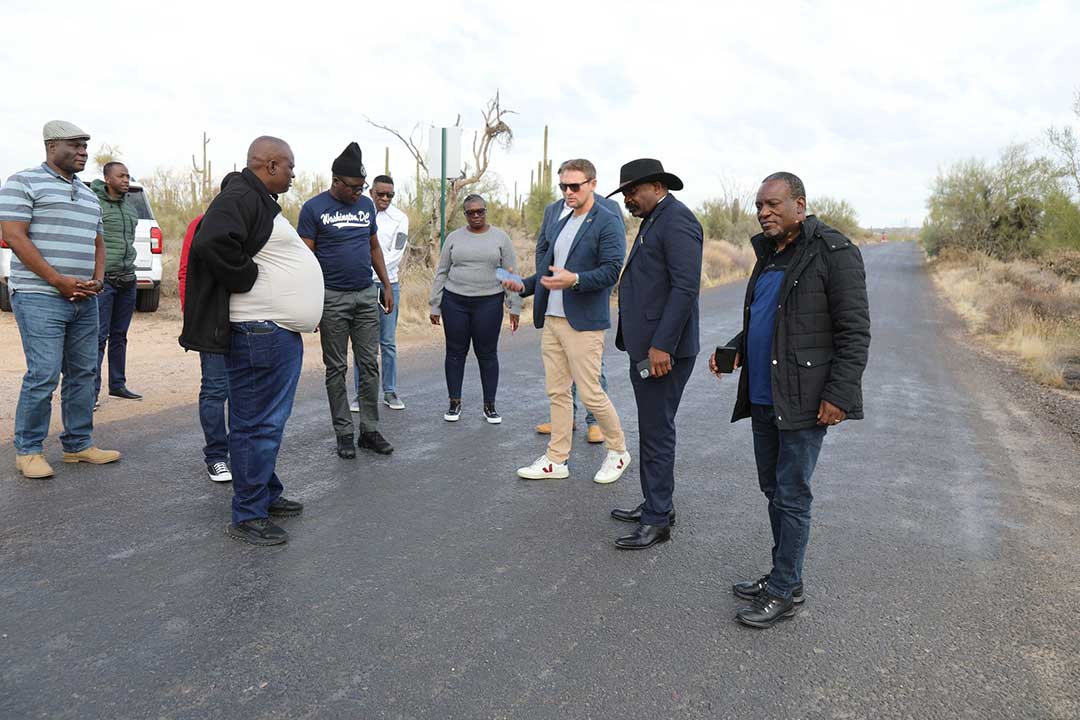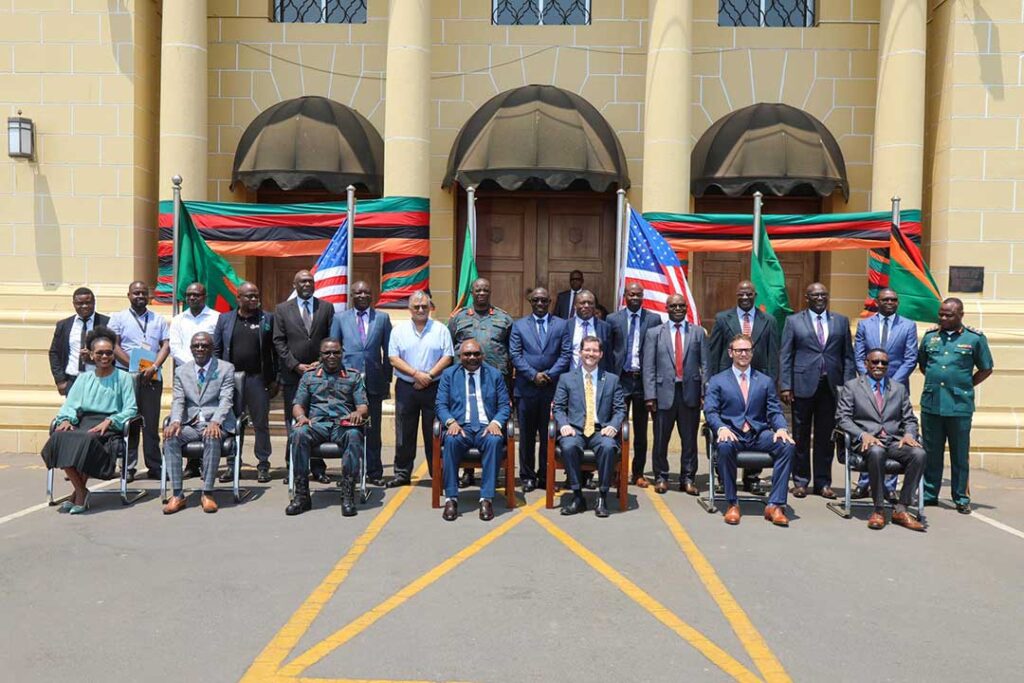ADF STAFF
The Zambia Ministry of Defence in late October signed a five-year deal with United States company Landlock Natural Paving Inc. to construct 5,000 kilometers of road throughout the country’s 10 provinces. Construction is slated to begin in March or April 2024, depending on weather.
Zambian Defence Minister Ambrose Lwiji Lufuma said the technology Landlock uses costs one-sixth of the standard cost per kilometer and produces roads more durable than “gravel roads that easily get washed away.”
“Not only do we intend to create jobs, we will ensure that there is skills transfer so that a good number of Zambians can benefit from this massive project,” Lufuma said in a Zambia National Service news release.
The project is expected to strengthen Zambian President Hakainde Hichilema’s Rural Connectivity Project, which focuses on rehabilitating old roads and building new ones.
The $725 million effort aims to promote regional travel and benefit the agricultural sector by enhancing the ability to transport produce, allowing greater accessibility for workers and facilitating the opening of new markets.
The project also includes technology transfer arrangements that will let the Zambia National Service, a branch of the Zambian Defence Force, help improve the country’s roads.

“From time and again the President of Zambia and Commander-in-Chief of the Defence Force has reiterated the need for the Defence Wings to participate in economic activities during peace time so that they can add value to the development of the nation,” Lufuma said.
Landlock roads have been built in 38 different countries across five continents. The company uses nontoxic polymeric emulsions that bind with soils and aggregates to produce roads that are four times stronger than asphalt, making them easier to maintain and less susceptible to cracking and potholes.
The roads are especially effective in hot climates, such as Zambia’s, and are less vulnerable to degradation from rain and extreme weather. During a November visit to the U.S. state of Arizona, Zambian officials saw roads that Landlock had built that were more than a decade old and still in good condition.
The Landlock roads are projected to have a lifespan of 10 to 15 years, compared to traditional feeder roads in Zambia that have a lifespan of three to five years.
“We anticipate an aggressive development plan with significant investment into supply chain management, training and certification,” Landlock Chief Executive Officer Mike Kostorowski said in a U.S. Embassy in Zambia news release. “The socio-economic impact will extend far beyond the Zambian jobs that are created in road construction — this program will accelerate growth and prosperity for all sectors.”

Investing in Zambian Security
Since 2014, the U.S. government has invested more than $8 million to help train Zambian battalions before deployment to the United Nations peacekeeping mission in the Central African Republic, The Conversation reported. Zambia is one of the top 20 troop-contributing countries to U.N. missions, with nearly 1,000 peacekeepers deployed worldwide.
The U.S. in mid-September committed $80 million to the Zambia Air Force to supply four Bell 412EP helicopters to help the country respond to crises. The grant includes three years of service, parts and training.
The helicopters will help Zambia continue to support domestic needs, enhance regional security and participate in international peacekeeping missions.
“The U.S. Army … has been instrumental in the training of our Zambian battalion contingents during predeployment training,” Zambia Army Commander Lt. Gen. Dennis Sitali Alibuzwi said at a news conference.
In September, Zambia hosted the African Senior Enlisted Leaders Conference, which focused on the empowerment of noncommissioned officers and the professional development of enlisted forces. Zambia was the first African nation to host the conference, which is co-hosted annually by U.S. Africa Command.

